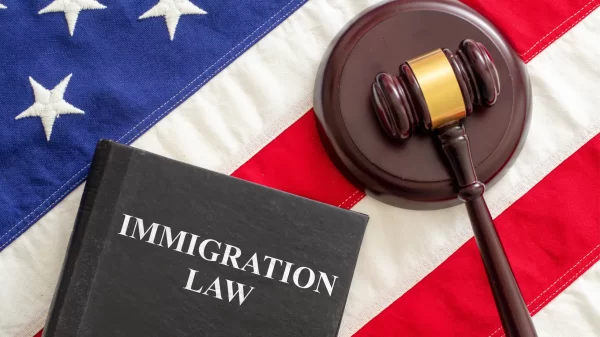State Rep. Ernie Yarbrough, R-Trinity, has announced his intention to bring a “universal school choice” bill in the 2024 legislative session.
Yarbrough hasn’t filed the bill yet, so the exact details are still up in the air. But Yarbrough said in his announcement that the bill would create Education Savings Accounts funded at about $7,000 annually – the amount the state spends on each student in the public school system – to any K-12 student in Alabama whose parents wish to participate. These funds could be used for any educational expense including tuition, textbooks, and transportation.
That sounds facially the same as such a school choice bill Yarbrough carried in the House during the past legislative session, the Parental Rights in Children’s Education (P.R.I.C.E.) Act, although Yarbrough’s announcement does not make any mention of the title.
Yarbrough’s bill didn’t gain any traction last session in the House, and Sen. Larry Stutts, R-Tuscumbia, didn’t have much better luck with the legislation being kicked around in multiple committees before dying without a vote on the floor.
Stutts at the time accused leadership of maneuvering to kill the bill after the Education Policy Committee said it would need to first go to the Senate Education Finance committee because of its effect on the budget.
But things may have changed since then as the idea of creating an ESA program now has the backing of Gov. Kay Ivey, although she has not detailed her vision for the program.
“Gov. Ivey said she wants Alabama to be the most ‘school choice friendly state in the nation,’ and I’m here to help her deliver that to the people of our state,” Yarbrough said in a release. “We have the opportunity to maximize freedom in education and equip parents to choose what is best for their children.”
The bill would not require a mandatory test, as Yarbrough argues the government should not be restricting what the schools teach.
““If we say a school has to administer a test, that means we are telling them what they have to teach,” Yarbrough said. “The goal of school choice is to create freedom in education, not increase government involvement and control in education.”
The $7,000 per pupil funding proposal is apparently based on current funding per pupil in the public education system, but does not seem to account for the approximately 85,000 students currently in private or homeschooling that would suddenly have access to public tax dollars for their private education.
In conversations surrounding the P.R.I.C.E. Act during committee meetings during the previous session, proponents of the bill noted that only about 1 to 5 percent of currently enrolled public students would be expected to take advantage of the ESAs, which they said would prevent the program from harming public education funding.
But those numbers would implicate that about 80 percent of students taking advantage of the program would be students who are already either in private school or homeschool, so more tax money would be flowing out of the Education Trust Fund than would be offset by reducing enrollment at public schools.
“Adopting school choice for all kids is the number one thing lawmakers can do to improve the quality of education for Alabama’s students,” said Ted Patterson, listed as vice president of grassroots at American Action Fund in Yarbrough’s release. “For too long, we have adopted a one-size-fits-all approach to American education. When schools and educators compete for students this drives innovation and ultimately success in all sectors of society. School choice improves educational outcomes across the board.”
The group American Action Fund is not registered with the Alabama Secretary of State and its webpage in a placeholder. americanactionfund.org. However, the organization is listed as a special project of Young Americans for Liberty.
Young Americans for Liberty’s main source of funding is the Young Americans for Liberty Foundation, which donated $3.4 million in 2019. While YAL does not disclose other donors, tax filings confirm donations from the Americans for Prosperity Foundation ($40,000 in 2017), the Chase Foundation of Virginia ($10,000 in 2019), and the Charles Koch Foundation ($9,907 in 2019).
Young Americans for Liberty is also funded by student memberships, which are $10 a year as of 2022.

















































